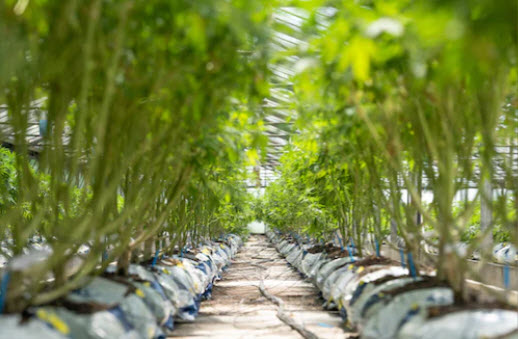There are many reasons that cannabis cultivators and producers globally target Deutschland, but there are also multiple challenges facing those who brave these waters. Here is a brief list
The German cannabis market is one of the most interesting in the world, both for its own peccadillos and by definition, its global nature.
It starts with this twist. Because of the cultivation bid launched by the government in 2017, the current German bid holders (Tilray/Aphria, Aurora, and DEMECAN) are only allowed to produce a highly limited amount of cannabis domestically. While this makes sense from a German governmental perspective – namely it is impossible that any of the cultivators would not sell all that they successfully grow – it has created a medical market as a result – and by definition – depends on imports globally.
Here are the top ten reasons that broaching this market is so challenging for those who accept the challenge.
- If you are not producing in Europe, then expect to run into issues with German-compliant EU GMP certification. This includes using consultants in the build of the cultivation space who get it wrong, to construction costs that end up making the plunge here unappetizing from a per gram perspective.
- Even if you are producing in Europe, it is well known at this point that the lack of standards and homogeneity across the EU creates another major challenge. In Portugal or Greece for example, where labor and other costs are dramatically cheaper not to mention the weather warmer, the investigatory authorities use different standards than the Germans do. This means you need to backward engineer everything set to a foreign spec and find consultants who are able to do that. They are not easy to find and when you do, expensive to work with.
- As referred to in a previous blog, the government created a market based on the idea of creating a generic, low-profit pharma feeder industry. As a result, the purchase prices, dictated by the supply chain and domestic regulation, all the way along the supply chain, are often much lower than foreign cultivators expect, not to mention foreign investors. That is why it is so critical to do one’s homework.
- There is an unsolved debate aus Deutschland presently about what actually constitutes a legit product. This includes the entire discussion about whole plant importation (roots and all) to what is necessary to reach an API standard that is acceptable German-wide. API in this usage means a certified pharmaceutical “ingredient” – not a finished product, which in the case of cannabis flower must be done by the pharmacy anyway. The debate about greenhouse vs. indoor grow is also one that is nowhere close to being solved. For this very reason, most firms outside the EU can expect to see a large amount per gram (between 1-1.5 euros per gram) going to certifiers in country, no matter how great your Ganga is.
- There is no national pharmaceutical chain. By German law, no one can own more than four brick-and-mortar pharmacies, although there is no law saying that at least one of these locations cannot be mail order (which also changes the equation, but not very much). This means that the entire domestic market is fragmented in a way that raises domestic costs for transportation and marketing and further is unseen in any other western nation. There are also very few distributors with the budget and manpower to reach every pharmacy in Germany, which in turn creates a patchwork network of access that is very hard to penetrate without a great partner domestically.
- The patient-doctor relationship is the most critical connection necessary for maintaining sales. However, reaching sweet spot is a task that rests almost solely on the shoulders of the German distributor. If you do not choose the right one, and further the one who can guide you through other common hurdles (including product registration and final certification as well as GMP certification of a cultivation facility), you will be stuck spinning forever. It is critical that you do your research and understand both the dynamics of and who the companies are in this market.
- Do not expect to “get rich” in this market. Those who do will be rapidly disappointed. The road, already, is paved with enormous amounts of money and several very large bankruptcies (Wayland) not to mention buyouts and mergers (Aphria to Tilray). Getting in and staying in, takes creativity, the right partners, and a view to the long game beyond deep pockets (although those are mandatory too.) See Canopy as a perfect example of a company that came in strong and so far has had multiple expensive mistakes.
- Forget the CBD, name-brand isolate, and other esoteric discussions. Issues like Delta 8 are so far off the table that it is a waste of time to consider it. The terpene-only market here is also highly limited and, if one is technical about it, bound to be bound by at minimum consumer health and safety regulations for all food and cosmetic products containing the same. In other words, the niche markets present in the US, in particular, are for the most part, off limits for Auslanders. At least for now.
- Forget any dreams of exporting CBD flowers for the retail market here for the foreseeable future. That was almost completely killed off by the federal decision in Germany in December. When will it revive? After legalization.
- Full legalization is certainly in the offing this year, and all signs over the last couple of months remain positive. However, remember that the passage of legislation is one thing. Implementation of a subsequent market takes (if Canada and the US state markets are anything to go by) at least 12-18 months. Beyond this, because of international treaties, expect not only Germany but all subsequent European followers on the recreational side, to be initially limited to domestic production. This means that any big dreams about exporting anything but foreign brand names here are precisely that for a period of time that could easily stretch to the end of the decade.









